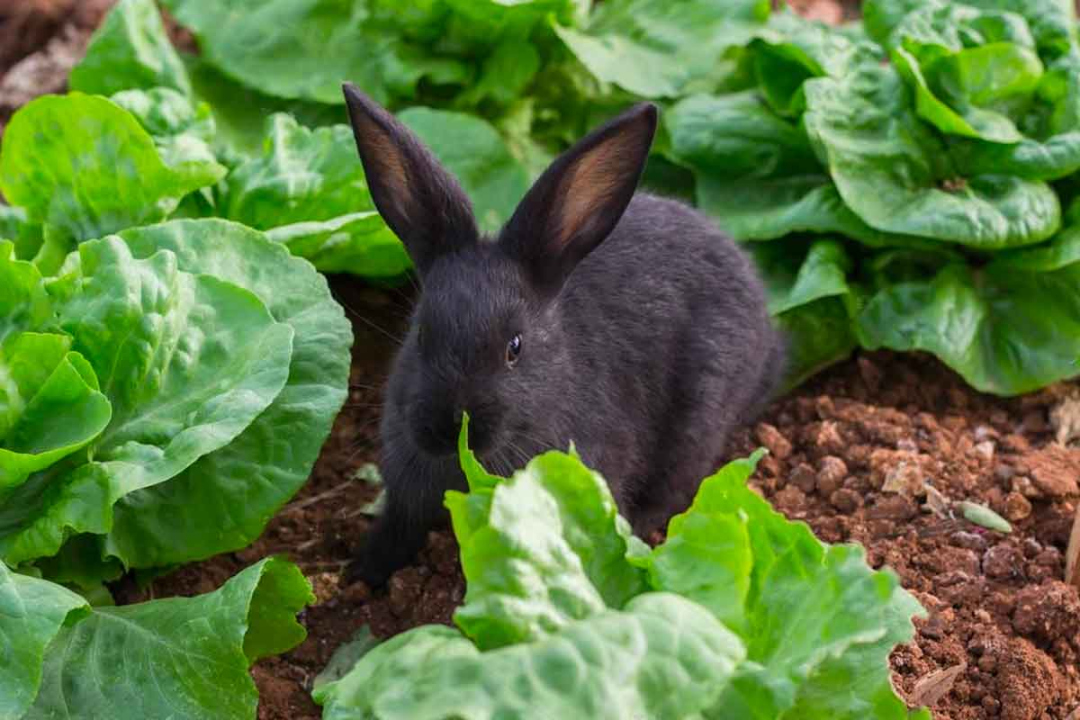Can a Rabbit Eat Cabbage?
Rabbits are adorable and lovable pets that require a well-balanced diet to maintain their health and happiness. As herbivores, their diet primarily consists of hay, fresh vegetables, and a small portion of pellets. While hay is an essential component of their diet, many rabbit owners often wonder if their furry friends can enjoy other vegetables, such as cabbage. Let’s explore whether rabbits can safely consume cabbage and how it can affect their overall well-being.

The Nutritional Value of Cabbage
Cabbage is a leafy vegetable that belongs to the Brassica family, which includes other cruciferous vegetables like broccoli and kale. It is packed with numerous essential nutrients that are beneficial for humans, including vitamins C and K, fiber, and antioxidants. However, when it comes to rabbits, the nutritional value of cabbage needs to be examined more closely.
Potential Health Benefits
While cabbage can offer certain health benefits to humans, its impact on rabbits may differ. Here are some potential advantages of feeding cabbage to rabbits:
- Cabbage is rich in fiber, which can aid in maintaining a healthy digestive system for rabbits.
- Fiber is crucial for rabbits as it helps prevent gastrointestinal issues like diarrhea and bloating. Introducing cabbage in moderation can contribute to a balanced diet for your furry friend.
- Cabbage contains vitamin C, which is essential for the overall well-being of rabbits.
- Providing your rabbit with an adequate amount of vitamin C can help boost their immune system and prevent diseases. Cabbage can be a source of this vital nutrient, supporting your rabbit’s health.
Potential Risks and Considerations
While cabbage can be incorporated into a rabbit’s diet, there are potential risks and considerations to be aware of:
- Gas and Bloating: Cabbage can cause gas and bloating in some rabbits, leading to discomfort and potential digestive issues. It is important to introduce cabbage gradually and monitor your rabbit’s reaction.
- Goitrogens: Cabbage contains compounds called goitrogens, which can interfere with thyroid function in rabbits when consumed in excess. These compounds can hinder the absorption of iodine, potentially leading to thyroid problems. Limiting cabbage intake and offering a variety of other vegetables can help mitigate this risk.
- Calcium Content: Cabbage contains calcium, but rabbits have specific dietary requirements for this mineral. Excessive calcium intake can lead to health issues such as bladder stones. Therefore, moderation is key when including cabbage in a rabbit’s diet.
FAQs about Rabbits and Cabbage
1. Can rabbits eat cabbage every day?
It is not recommended to feed rabbits cabbage every day. While cabbage can be a healthy addition to their diet, it should be offered in moderation to prevent potential health issues such as gas, bloating, and thyroid problems.
2. How much cabbage can I feed my rabbit?
The amount of cabbage you can feed your rabbit depends on its size and individual tolerance. Start by introducing a small piece and observe your rabbit’s reaction. If there are no negative effects, you can gradually increase the portion, ensuring it remains a small fraction of their overall diet.
3. Can rabbits eat all types of cabbage?
Rabbits can consume different types of cabbage, including green cabbage, red cabbage, and savoy cabbage. However, as mentioned earlier, moderation is key, and it is crucial to monitor how your rabbit responds to each type.
4. Can rabbits eat cabbage leaves and stems?
Both cabbage leaves and stems are safe for rabbits to eat. However, it is essential to thoroughly wash the cabbage to remove any potential pesticides or harmful substances before offering it to your furry friend.
In conclusion, rabbits can eat cabbage, but it should be introduced in moderation and with careful monitoring of their reaction. While cabbage offers certain health benefits, excessive consumption can lead to digestive problems, thyroid issues, and calcium imbalances. Providing a varied diet that includes other vegetables is crucial for maintaining your rabbit’s overall well-being. Remember to consult with a veterinarian if you have any concerns about your rabbit’s diet or health.
Related Articles…
Copyright Notice:
The images displayed here are sourced from the internet, with copyrights held by respective owners. For removal of any copyrighted image, please email us.